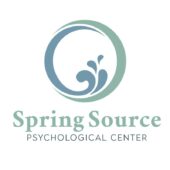
Anxiety therapists in Saint Marys, Pennsylvania PA

Ebb & Flow Counseling + Coaching
Psychologist, PsyD
We will help you reduce and manage your anxiety through CBT techniques and relaxation training.
SpringSource Psychological Center, PLLC
Psychologist
SpringSource Psychological Center was founded by two Ph.D., licensed clinical psychologists Dr. Susan McClanahan and Dr. Angela Derrick, as a collaborative practice to help individuals heal from eating disorders, depression, anxiety, trauma, relationship concerns, and life stressors such as pregnancy and infertility.
Paul Losoff
Psychologist, PsyD
Let me help you to regain control of your anxiety, face your fears, and start feeling unburdened by counterproductive thoughts. I know it can often feel insurmountable, but I do believe that with the right support, skills, and strategies, you can overcome your anxiety. Together, we'll work to understand the root of your anxieties and develop tools to help you manage them effectively.
Jayson L. Mystkowski
Psychologist, Ph.D., ABPP
While Cognitive-Behavior Therapy (CBT) is highly effective in the treatment of anxiety disorders (e.g., Panic Disorder, Social Phobia, and Obsessive-Compulsive Disorder), clinicians do see some “return of fear,” or partial relapse, in some patients due to a variety of factors. Over the past two decades, treatment researchers, with whom Dr. Jayson Mystkowski had the pleasure of working with at UCLA for over 10 years, have studied “return of fear” and discovered some key variables that may optimize the effects of learning during CBT for anxiety disorders (Craske et al., 2008).
First, evidence suggests that focusing on tolerating fear versus eliminating fear yields better clinical outcomes in the long term. Namely, teaching clients that fear and anxiety are normal feelings, rather than attempting to “down-regulate” such feelings all the time, is more realistic and seems to engender “hardier” clients. Second, helping clients to generate an expectancy that “scary things will not happen,” is very powerful. To do this, it is important for clinicians to create more complex exposure exercises (i.e., tasks in which a client confronts a stimulus of which they are afraid), using multiple feared stimuli instead of one at a time. Then, the lack of a feared outcome becomes particularly surprising and memorable for a client and fear reduction is more potent. Third, increasing the accessibility and retrievability of non-fear memories learned during treatment are powerful factors in mitigating against a return of fear. Craske and colleagues demonstrated that exposure to variations of a feared stimulus, using a random schedule across multiple contexts or situations, is more effective than exposure to the same stimulus, on a predictable schedule, in an unchanging environment. The former paradigm, it is argued, creates stronger non-fear memories that are easier for a client to access when subsequently confronting feared objects or situations outside of the therapy context, than the later scenario.
In sum, clinicians have long been aware that some fear or anxiety returns following very successful CBT treatment. As mentioned above, there are some clear, empirically supported ways to modify the therapy we provide to further help clients generalize the gains made in therapy sessions to the real world.
Lee Chase
Psychologist, Ph.D.
The pandemic has given rise to an understandable increase in our anxieties and fears, many of which we haven't faced before. Together, we'll discuss how your anxieties and/or fears are interfering with your quality of life, and ways in which to reduce their impact.





